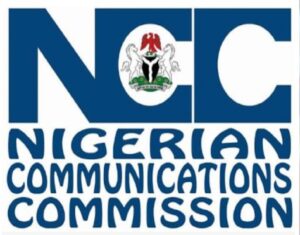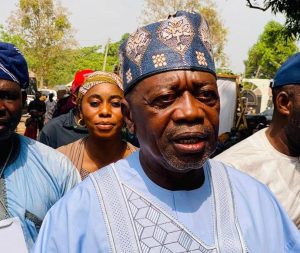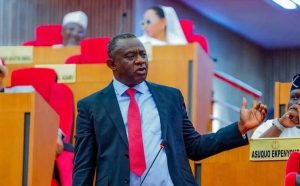Rethinking Opposition: Reawakening Our Consciousness on Democracy and Inclusivity

By Christopher Sunday, Kogi State Polytechnic, Lokoja
The essence of democracy lies in its commitment to justice, participation, and the common good. From Plato’s Republic to John Locke’s Two Treatises of Government, political philosophy has long grappled with the question of how power should be exercised and checked in a just society. At its core, democracy is a system that balances authority and opposition, governance and critique, power and responsibility. However, when opposition becomes merely antagonistic rather than constructive, it risks undermining the very democratic ideals it seeks to uphold.
Aristotle, in his Politics, argued that the stability of any political system depends on a virtuous citizenry—one that understands not only its rights but also its duties. Similarly, John Stuart Mill, in On Liberty, emphasized that democracy flourishes when opposition serves as a mechanism for progress rather than obstruction. Yet, in many contemporary societies, opposition often degenerates into a zero-sum struggle for power, where governance is perceived as a battleground rather than a shared responsibility.
True democracy is not about perpetual conflict but about inclusivity, dialogue, and collaboration. It requires a political culture where opposition is not defined by hostility but by a commitment to truth, justice, and national development. As Emmanuel Levinas would argue, ethical responsibility precedes political rivalry; democracy must first and foremost be about the people, not just political competition.
This article seeks to reawaken our consciousness to the values of democracy and inclusivity, urging us to rethink opposition as a force for constructive engagement rather than division. By examining the role of governance, participation, and national unity, we explore how democracy can be deepened when opposition aligns itself with the principles of responsible citizenship and progressive nation-building.
Democracy is not just about elections; it is about governance, inclusivity, and development. In a society where democracy thrives, citizens must understand that opposition is not about tearing down the government but ensuring that governance is effective, just, and beneficial to all. However, in our quest for progress, we must learn to engage the democratic process constructively rather than playing the role of an adversarial opposition.
True democracy flourishes when citizens support policies that drive development and progress. Instead of focusing on political differences, we should rally behind government initiatives that promote economic growth, security, and social welfare. Supporting policies that benefit the people, regardless of political affiliations, fosters national unity and accelerates progress.
Constructive engagement with government officials yields better results than unnecessary criticism. Rather than openly attacking government policies, we should provide alternative solutions through dialogue and advisory roles. Diplomatic engagements ensure that our voices are heard without creating division or hostility.
Democracy is about participation, not just voting during elections. Citizens should take active roles in governance by seeking appointments, contesting elections, or joining public service committees. When people actively engage in governance, they contribute to decision-making and policy implementation, ensuring inclusivity and representation.
A divided society cannot develop. Political affiliations should not become barriers to unity. We must promote peaceful coexistence and encourage collaboration among various political groups. True democracy is about dialogue, negotiation, and consensus-building, rather than hostility and political rivalry.
Instead of focusing on power struggles, we should embrace politics that drive social and economic development. This means supporting policies and projects that improve education, healthcare, infrastructure, and economic opportunities. Developmental politics ensures that democracy delivers tangible benefits to the people.
For democracy to thrive, political parties must uphold fairness, transparency, and discipline. Instead of fighting leadership structures, we should work within the system to ensure democratic values are upheld. A well-organized political party fosters unity and prevents unnecessary internal conflicts that weaken governance.
The media plays a crucial role in shaping public perception. Instead of using it as a tool for propaganda or spreading misinformation, we should use it to promote national development, peace, and constructive engagement. Responsible use of media enhances public trust in governance and strengthens democratic institutions.
Elections are a fundamental part of democracy, and accepting electoral outcomes peacefully is key to political stability. Instead of inciting violence or rejecting election results without evidence, we should focus on strengthening the electoral process. Democracy grows when we respect the will of the people and prepare for future elections through legal and peaceful means.
Beyond politics, we must engage in nation-building through business, professional work, and community development. Non-partisan roles allow us to contribute to society without being hindered by political differences. When we focus on development rather than party loyalty, we foster a more inclusive and progressive democracy.
Democracy is not about opposition for the sake of opposition; it is about inclusivity, participation, and national development. By supporting government policies, engaging in diplomacy, participating in governance, and fostering unity, we can create a democratic system that benefits all citizens. Let us reawaken our consciousness to the true values of democracy—one that embraces inclusivity, development, and peace.
The future of our democracy depends on our ability to work together for the common good. It is time to put aside divisive politics and focus on building a society where everyone has a voice and a role in governance. Together, we can make democracy work for all.





